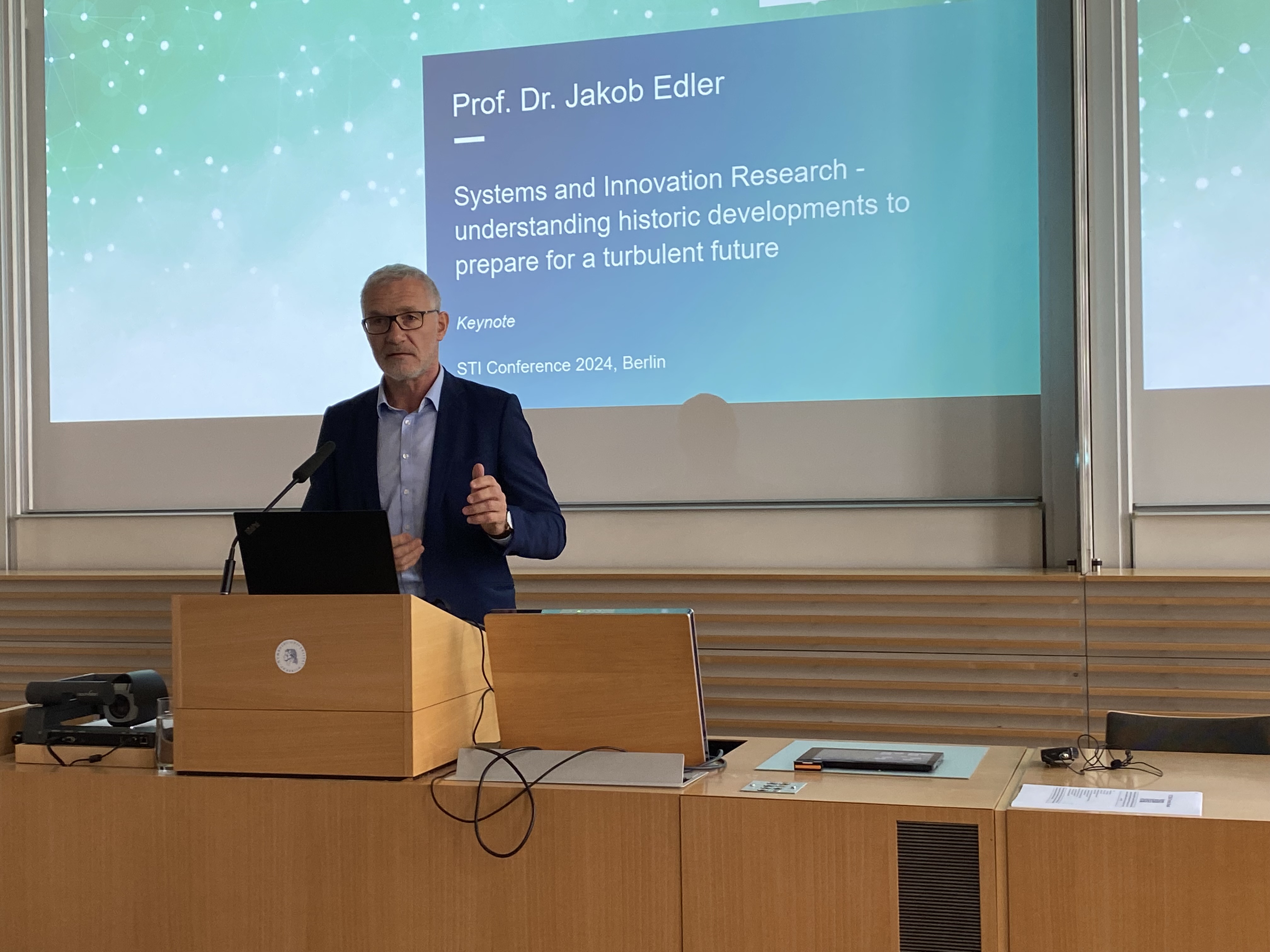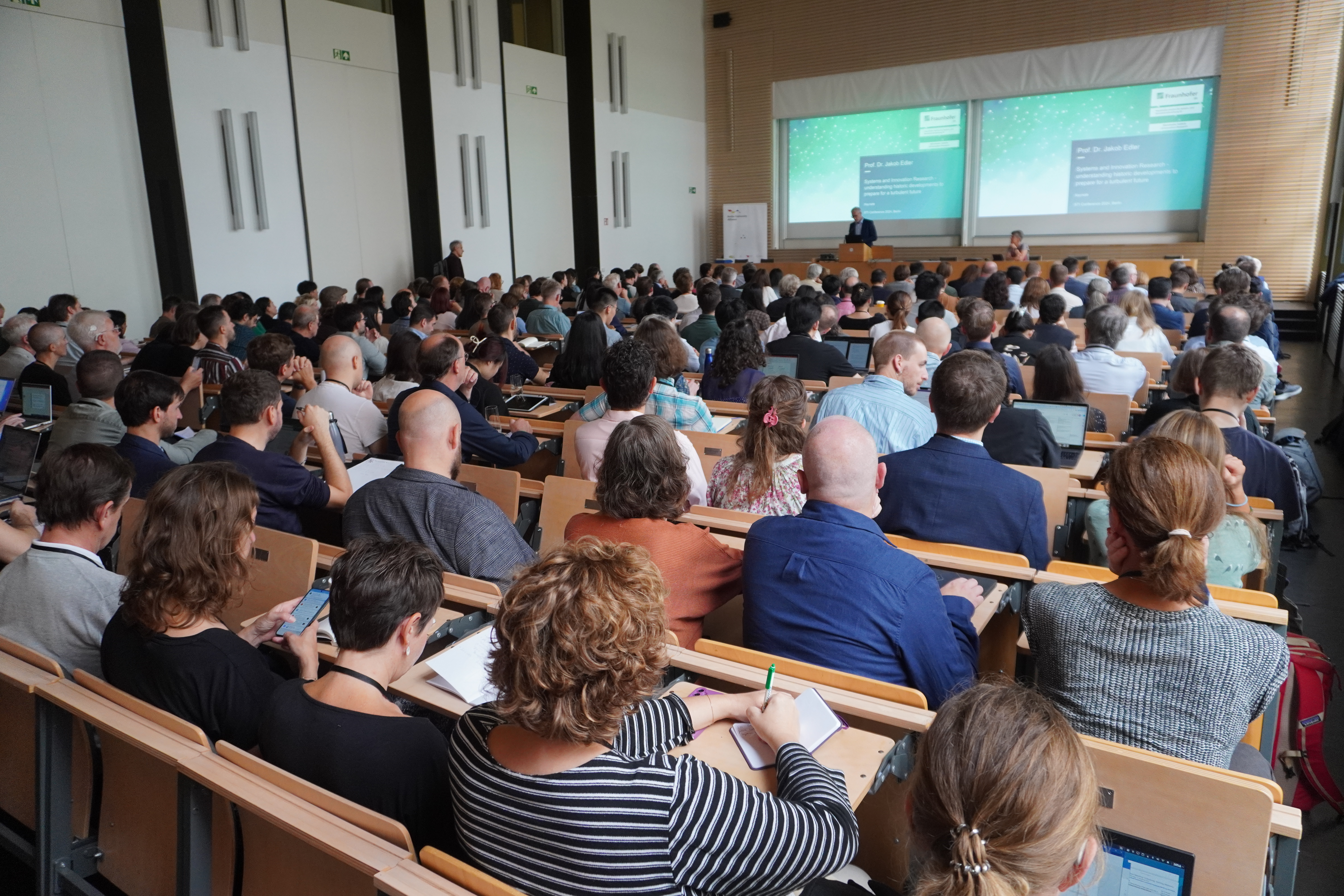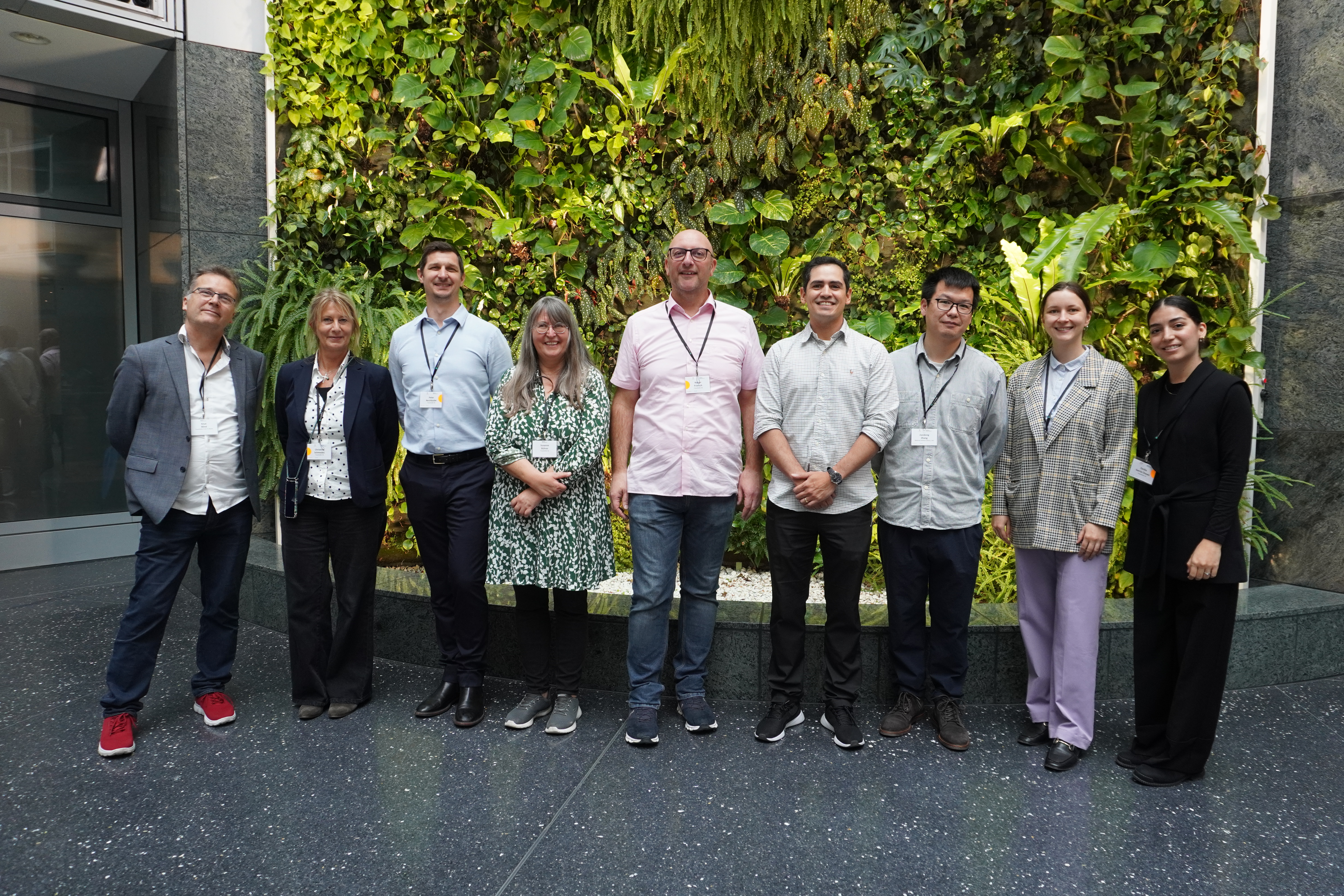“Into the great wide open?“ A discussion of current research methods at the international STI conference on science, technology and innovation indicators in Berlin
The 28th International Conference on Science, Technology and Innovation Indicators 2024 came to a close in Berlin today. At the three-day event, over 350 participants from the research community discussed the complex dynamics between concepts of openness and closedness in science, technology and innovation, and their impact on research, policy and practice. The Fraunhofer Institute for Systems and Innovation Research ISI was the main organizer of the conference, which was co-hosted by the Humboldt University of Berlin (Robert K. Merton Center for Science Studies) and the German Center for Higher Education Research and Science Studies (DZHW) in collaboration with the European Network of Indicator Developers (ENID).



What drives our research in increasingly uncertain times? How can we ensure high-quality research and data? What can individual research areas contribute and how can they network with each other? What impact does our research have on society? In over 60 sessions and special events, the international community discussed these and other questions.
The high-profile lineup of the conference participants was already apparent in the welcoming addresses by Prof. Jesper Schneider, ENID President, Christoph Schneider, Vice President for Research at Humboldt University Berlin, and Prof. Peter van den Besselaar, Head of the Research System and Science Dynamics Department at the DZHW.
The growing challenges of the future
Prof. Jakob Edler gave the opening keynote. The director of Fraunhofer ISI devoted his address to the importance of understanding historical developments in the field of systems and innovation research and outlined how this can help prepare for a turbulent future. In doing so, he emphasized the enormous importance of indicators as a key pillar of innovation research.
“The importance of scientifically sound indicators cannot be overestimated. They lay the foundation for many insights, particularly in related disciplines as well as in politics and strategy development. In the face of growing skepticism toward science and the spread of populism, evidence-based thinking is more necessary than ever,“ said Edler. In his speech, he appealed for the need to learn from the past in order to meet current and future challenges arising from contextual turbulence such as geopolitical tensions and an urgent need for transformation.
Edler called for closer networking within the research community in response to the growing demands on science: “Ever shorter cycles of political and social demands on system and innovation research require closer networking and overarching collaboration within the scientific community,“ said Edler.
Overarching collaboration within the scientific community
Networking at all levels was therefore the focus of the entire conference, including the special sessions. At the “Early Career Event“, young scientists had the opportunity to talk to one another and to experienced experts.
The session of the “Women in Science Policy (WISP)“ initiative, which was offered for the third year in a row, pursued the goal of establishing women in science policy and building a network for female researchers. This year, the meetings focused on collaboration with female political decision-makers, who reported on their career experiences in areas relevant to science policy and highlighted potential opportunities for collaboration between female researchers interested in quantitative and qualitative science studies and science policy.
Advancing STI research
The conference made it clear that the context-based analysis of innovations must take place in their respective sectoral systems and that the many different topics must be closely interlinked. This need was underlined not least by the questions and comments that arose at the end of the conference in the relatively new “community session“ format. The current developments in the STI community were discussed in depth at the conference, underlining the necessity of this kind of exchange.
Dr. Rainer Frietsch, head of the Competence Center Innovation and Knowledge Economy at Fraunhofer ISI, and one of the main organizers, sums up: “The aim of the conference was to revive the international exchange of the STI community after the constraints of the pandemic. Together with our organizational partners and all the participants, we are extremely satisfied with the result. As one of the largest events in this series, with participants from 35 countries, new contacts were made and existing ones renewed. The diverse expertise and insights have already led many to new research ideas and questions.“
Further information
Always up-to-date
The Fraunhofer Institute for Systems and Innovation Research ISI analyzes the origins and impacts of innovations. We research the short- and long-term developments of innovation processes and the impacts of new technologies and services on society. On this basis, we are able to provide our clients from industry, politics and science with recommendations for action and perspectives for key decisions. Our expertise is founded on our scientific competence as well as an interdisciplinary and systemic research approach.